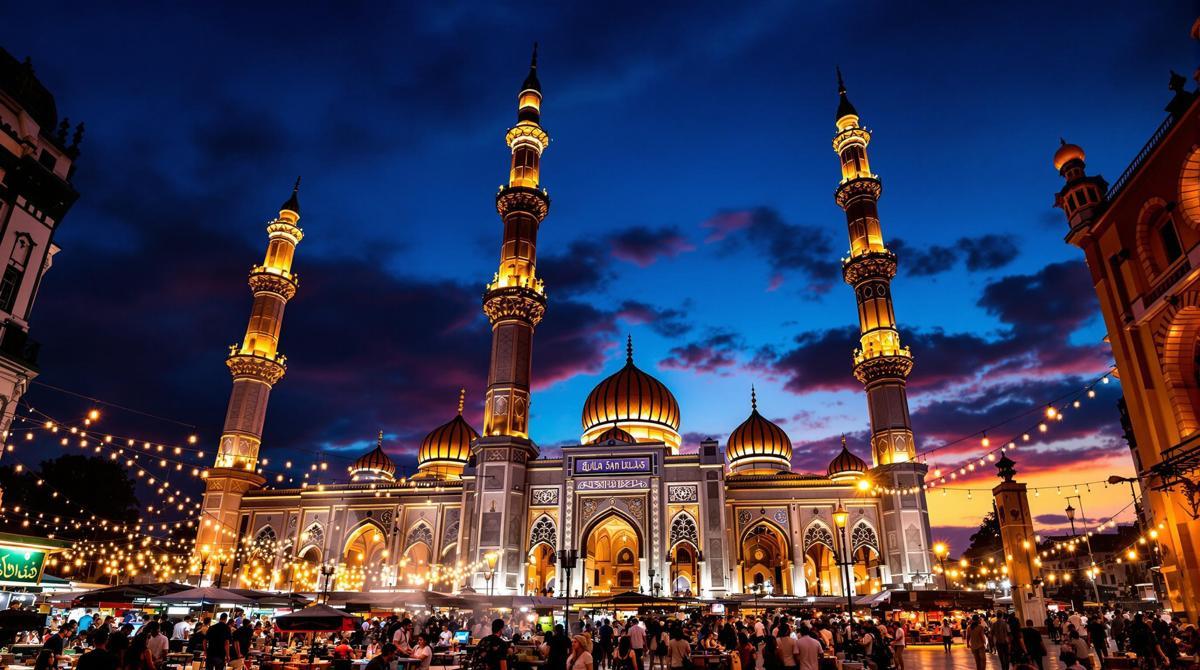Ramadan transforms travel into a profound cultural immersion experience unlike any other time of year. For non-Muslim travelers exploring Islamic countries during this holy month, understanding and respecting local traditions isn’t just good etiquette—it’s essential for meaningful connections and authentic experiences. This comprehensive guide helps you navigate the beautiful complexities of Ramadan travel with respect and appreciation.
The spiritual rhythm that changes everything
During Ramadan, the ninth month of the Islamic calendar, Muslims fast from dawn until sunset, abstaining from food, drink, smoking, and certain behaviors. This period of spiritual reflection dramatically alters daily routines in Muslim-majority countries. Streets that bustle with morning activity year-round may become quieter during daylight hours, while evenings burst with celebratory energy after iftar (breaking of the fast).
Many cities worldwide transform completely during Ramadan, offering unique cultural experiences you simply cannot witness at other times of the year.
Essential etiquette: showing respect through actions
The golden rule for travelers during Ramadan is simple: respect those who are fasting. Avoid eating, drinking, or smoking in public during daylight hours. Many restaurants close during the day or offer takeaway services only, though tourist areas and hotels typically maintain services for non-Muslims.
“Travelers who respect our customs during Ramadan aren’t just visitors—they become honorary members of our community,” explains Mohammed Rahim, a tour guide from Marrakech. “We appreciate those who make an effort to understand our traditions.”
Dress modestly and mind your volume
Conservative dress is always appreciated in Muslim countries but becomes particularly important during Ramadan. Women should cover shoulders and knees, while men should avoid shorts in public spaces. Additionally, maintain quiet public behavior and avoid loud music or boisterous conversations, especially near mosques during prayer times.
Timing your activities strategically
Plan your sightseeing during morning hours when energy levels are highest. Government offices, banks, and many businesses operate on reduced hours, so confirm opening times in advance. The period just before sunset can be hectic as people rush home for iftar, making it an excellent time to retreat to your accommodation.
The magnificent architecture of faith
Sacred mosques become even more spectacular during Ramadan, with special illuminations and increased attendance. Many welcome respectful non-Muslim visitors outside prayer times, offering glimpses into the spiritual heart of Ramadan.
Embrace evening magic in ancient markets
After sunset, cities come alive with a festive atmosphere that’s utterly enchanting. Ancient cities transform into magical wonderlands during Ramadan, with markets bustling late into the night and restaurants reopening with special iftar menus.
“The nights of Ramadan carry a special kind of magic you can feel in the air—families gathering, the scents of special foods, and a genuine sense of community that visitors are warmly welcomed into,” says Fatima Alaoui, a cultural historian from Istanbul.
The unexpected perks for travelers
Traveling during Ramadan offers unique advantages: reduced crowds at major attractions during daytime hours, special cultural events and Ramadan-specific activities, and opportunities to experience extraordinary communal iftars. Many hotels and restaurants offer special iftar buffets where travelers can experience traditional Ramadan cuisine alongside locals.
For digital nomads considering extended stays in Muslim countries, it’s worth noting that alternatives like European destinations with favorable visa policies or Thailand’s special long-term visas might better suit those seeking consistent working hours.
Unexpected treasures beyond tourist trails
Venture beyond well-known sites to discover neighborhood mosques hosting community iftars or local charity events. These gatherings often welcome respectful visitors and provide authentic cultural exchanges impossible to find on standard tourist itineraries.
“The most beautiful Ramadan experiences happen in ordinary neighborhoods, not tourist zones,” notes Ibrahim Hassan, a community leader in Cairo. “When travelers approach with genuine curiosity and respect, doors open to experiences no guidebook can list.”
Traveling during Ramadan offers an unparalleled window into Islamic culture at its most vibrant and spiritually significant moment. By approaching your journey with respect, curiosity, and flexibility, you’ll discover not just new places, but profound human connections that transform ordinary travel into extraordinary cultural immersion.
